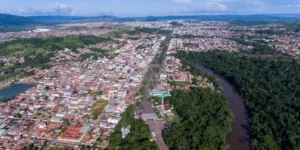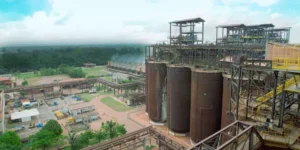Municipalities that are home to hydroelectric power plants and areas flooded by them in Brazil demanded 700 million reais in financial compensation in the Chamber of Deputies on Thursday, the 18th. This money would be used to promote the development of the 725 municipalities that are in this situation.
Municipalities that have been home to power plants for a long time, such as Ilha Solteira, in São Paulo, have stopped exploring their tourism potential and have reduced fishing and agricultural activity due to the dams. They complain that their natural resources have been reduced without the compensation they deserve for this loss.
The representative of another of these municipalities, Paulo Afonso, in Bahia, estimated the loss in ICMS revenue between 2010 and 2015 at R$50 million due to the entry into force last year of a law that reduced the price of electricity for consumers, but reduced ICMS revenue, which is the main source of tax for municipalities that are home to hydroelectric plants.
The mayors mobilized for the session in the Chamber in defense of the proposal to increase financial compensation, with an increase from 45% to 65% of the percentage of participation of city governments in the Financial Compensation for the Use of Water Resources.
Another proposal increases from 25% to 30% the share of ICMS collected by the States and transferred to the Municipalities; It increases by 2% the portion of income tax that will be distributed by the Union to the Municipal Participation Fund, the FPM, and adds the sharing of 23.05% of the collection of social contributions, for the municipalities to be applied in public health actions and services. The allocation of the new resources to the Incentive Program in Municipalities Hosting Hydroelectric Power Plants and Flooded Areas is criticized by the associations. They consider that it is harmful to these municipalities because it takes away resources that are theirs to apply them in all Brazilian municipalities, which total 5,570, 10 times more than the areas directly affected by river damming. And these municipalities that are host to power plants and flooded areas already lack investments to solve their own problems. Their associations managed to change the original project, in the government’s interest, which provided for the transfer of 10% of the resources from the financial compensation to a fund managed by the federal executive branch. According to the entities, this change would make it bureaucratic and difficult for municipalities to access these resources. In addition to the fact that municipal public authorities “are better prepared than the Union to identify local social and environmental problems generated by hydroelectric plants and to plan and execute the necessary actions to address them,” the deputy declared, according to the note they issued on Thursday.
The municipal front is led by the National Association of Municipalities Hosting Hydroelectric Plants (AMUSUH) and the National Association of Producing Municipalities (ANAMUP), in partnership with the Joint Parliamentary Front in Defense of Municipalities Hosting Hydroelectric Plants and Flooded Areas.
What can be seen in this fight between mayors and the federal government for existing JAM resources and those that will be added to the use of rivers as a source of energy is the absence of Pará from this movement. Neither of the two associations has representatives from the state, although Pará is the fifth largest energy producer in Brazil, has the largest hydroelectric plant entirely in Brazil and the second largest reservoir, Tucuruí. In one of the associations, the only member of the association represents Amazonas, being from the municipality of Presidente Figueiredo, which is home to the infamous Balbina plant.








